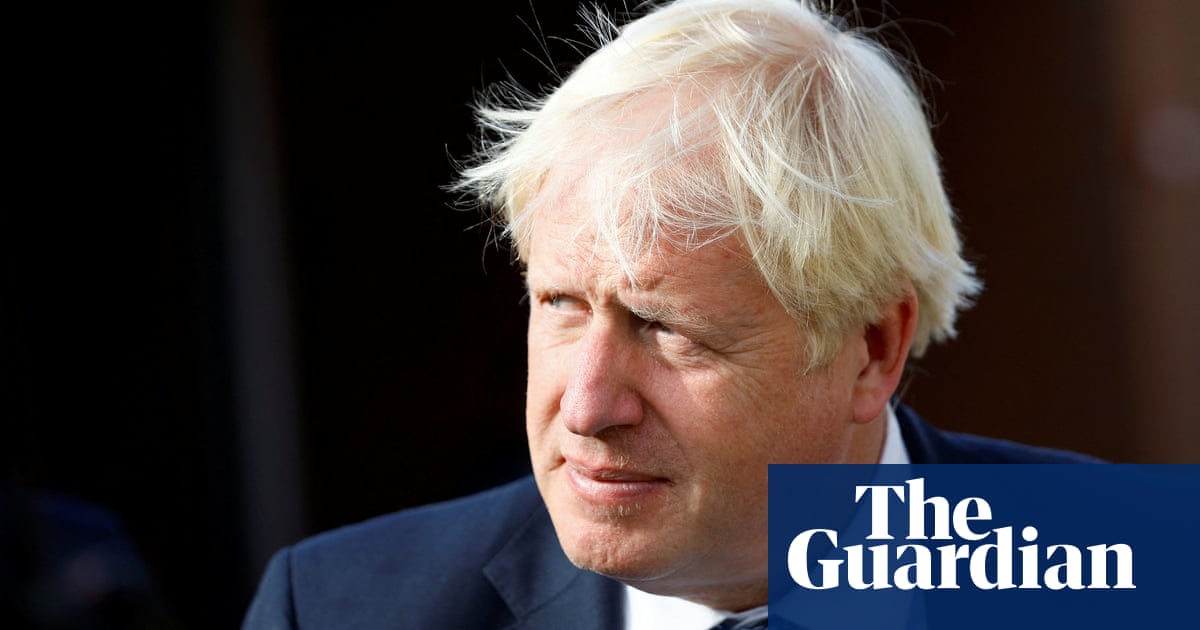
British politics is in a chaotic state. Since the beginning of the year, the prime minister, Boris Johnson, has faced months of negative headlines, including a protracted investigation into parties held in Downing Street at the height of the pandemic. This week, a sexual abuse scandal involving a government whip precipitated something far greater.
The prime minister has now announced his intention to resign. He faced mass ministerial resignations, dissension in his Cabinet and the growing sense that his time had simply run out. The media consensus is that this is an ignominious conclusion.
All this may be true. Johnson’s initial insistence that he would remain in office — the statement alone was something considered impossible to make by many commentators — eventually stalled.
But even as he prepares to leave office, it is worth reexamining Johnson’s difficult time in power and what he did with his term in office. It has been just shy of three, difficult years filled with national and international crises, including the pandemic, war, and economic stress and difficulty.
When the histories of this period are written, they might be kinder to Johnson than many people currently expect. In terms of the essential events of his premiership, it seems increasingly clear that, on the major issues, Johnson was largely on the right side.
This view is not universally shared; part of that is a question of personalities and style.
Johnson, as prime minister, attempted to play both innovator and disruptor. He hired unconventional people to staff 10 Downing Street and, as many of them left under a cloud of acrimony, it was assumed that those individuals had been brought in erroneously.
However, in the case of Dominic Cummings — now a declared rival — for instance, Johnson succeeded in his limited objectives: He won the 2019 election with a large majority, and was finally able to pass a version of a Brexit deal that allowed the UK to leave the EU.
An agreement for the European departure had eluded the previous Conservative leader, Theresa May, and a convincing election win had escaped every Tory leader of the past 30 years with the exceptions of David Cameron and John Major.
Leaders are not only judged on the elections they win. It also matters what they do with their power. Johnson’s time has coincided with great international difficulties. In the past three years, the world has felt unstable in ways that were akin to the aftermath of the Sept. 11 attacks in 2001, and the financial meltdown of 2008.
Britain has not been immune from these global shocks. The country has faced unprecedented challenges, including the COVID-19 pandemic, global demand-and-supply shocks, and the war in Ukraine.
When the histories of this period are written, they might be kinder to Johnson.
Dr. Azeem Ibrahim
Johnson’s handling of COVID-19 was widely unpopular among parts of his own party, who despaired of any regulations designed to hold the virus back, and among those who wished for more extensive restrictions covering a greater portion of the pandemic’s first two years.
Although statistics are still difficult to verify, all-cause mortality data emerging now for the first time indicates that Britain performed rather better than thought, and that Johnson’s government saved rather more lives than his critics had alleged.
On the war in Ukraine, Britain was arming and training Ukrainian forces before the threat of war was fully understood by other countries. Britain is not the largest donor to Ukraine, either financially or in terms of equipment, but those British systems that have found their way there are popular favorites; the NLAW anti-tank weapons especially, but also the Mastiff, Wolfhound and Husky armored vehicles.
Indeed, the extent of international approval for Johnson’s policies is often met with incredulity in Britain. He is the most popular foreigner in Ukraine, as numerous reporters who are personally opposed to the prime minister have discovered.
Johnson is not a traditional politician and, as such, he defies traditional analysis. In times of crisis, conventional thinking is often insufficient — not least when the conventional thinking on starving Ukraine of aid or joining vaccine procurement plans run by the EU goes some way to exacerbating the problems we wish to solve. Unprecedented times require leaders who buck trends.
As the end of his premiership approaches, it is worth reassessing Johnson’s time in power and his true role in government, the good and the bad. Offering an objective analysis of the global challenges we are facing, and have faced, and how the prime minister dealt with them is as useful as it is necessary.
• Dr. Azeem Ibrahim is the director of special initiatives at the Newlines Institute for Strategy and Policy in Washington D.C. and author of “The Rohingyas: Inside Myanmar’s Genocide” (Hurst, 2017).
Twitter: @AzeemIbrahim












